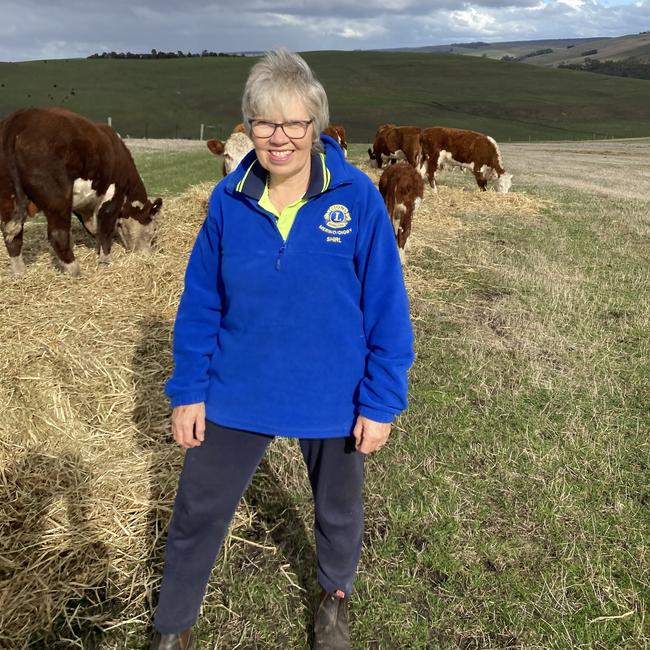More than 1000 hay bales depart for Merino in ‘green drought’
A New South Wales farmer is helping return a favour, taking part in a 1000-bale donation to western Victorian farmers over the weekend.
More than 1000 bales have landed at drought-affected farmers’ paddocks, as a Need for Feed fleet made its 500-kilometre journey across the state.
Need for Feed founder Graham Cockerell said 24 trucks were packed with “at least” 1000 bales at Jindera and Cobram, ready for nearly 100 farmers across the Glenelg and Southern Grampians shires.
Mr Cockerell said they were very grateful for the donations – be they monetary, machinery, time or feed – and they hoped to receive continued support for farmers.
People from “all over” had donated to Need for Feed, including from Victoria, South Australia and New South Wales.
For feed donors and Toorooka farmers David and Carolyn Duff, and their son Campbell, they were able to repay a favour.
The Duff family lost about $1.2m in costs within two hours, including a house, all feed and boundary fencing during fires in 2019, when about 5.5 million hectares burnt in NSW.
“It rained fire,” Mr Duff said. “Then Need for Feed turned up and there were more than 40 truckloads of hay, and people in the area were very grateful.”
After two floods and another fire in the years that followed, this year the Duffs were finally in a position to return the favour at the suggestion of his son.
“It was a bloody good idea, so I got on the phone,” he said.
“It’s just an Aussie bloke giving another Aussie bloke a hand.”

One of this weekend’s feed recipients included Merino-Digby Lions Club administrator Shirley Menz, Henty, who has 600 ewes and 20-head of cattle.
They were currently lambing and struggled to secure feed due to availability and freight cost.
“You’re doing what you can to keep your base level of stock alive,” she said.
Her local Lions Club, alongside Casterton and Heywood Lions Clubs, hosted more than 130 people for dinner, and provided breakfast and packed lunches for the truck drivers and crews.
Ms Menz said she expected a “long haul” ahead of the region’s farmers into spring.
“This is far worse than what it ever was,” she said.
“It’s heartbreaking, we all care for our animals and it’s really tough when you can’t care for them as well as you’d like to.
“[This feed] means we have more feed for a bit longer, until we can try and source more.”




